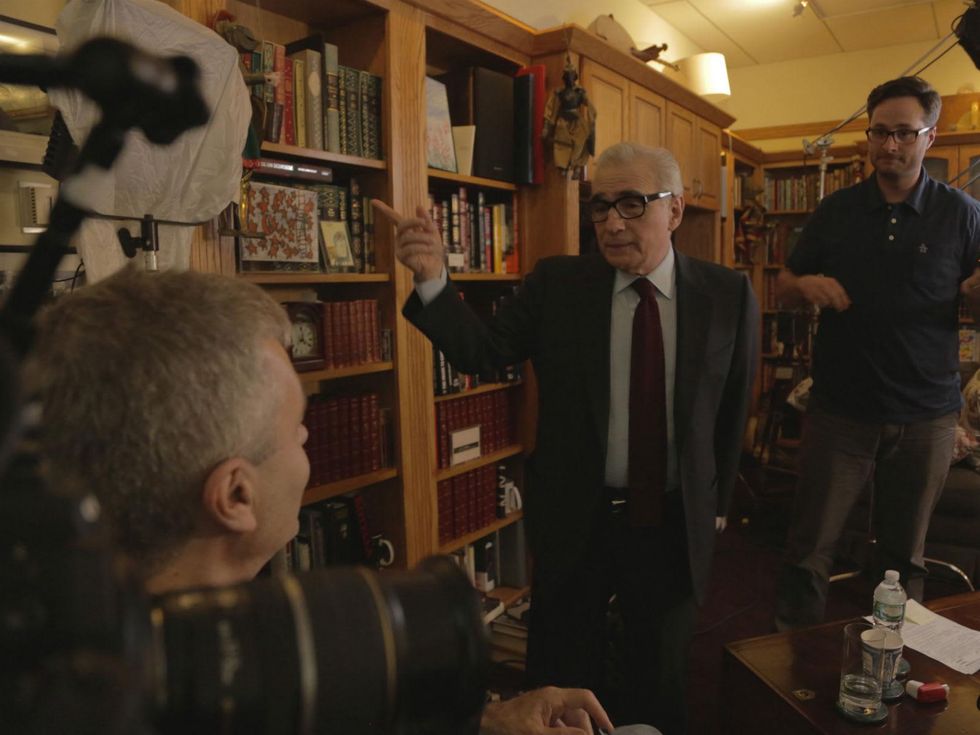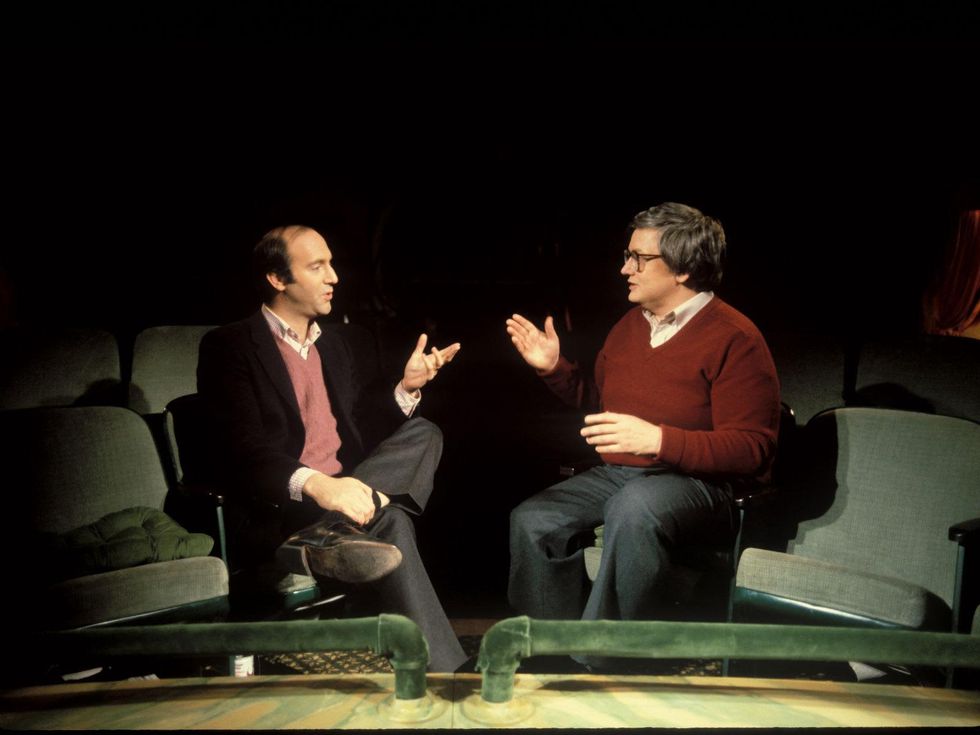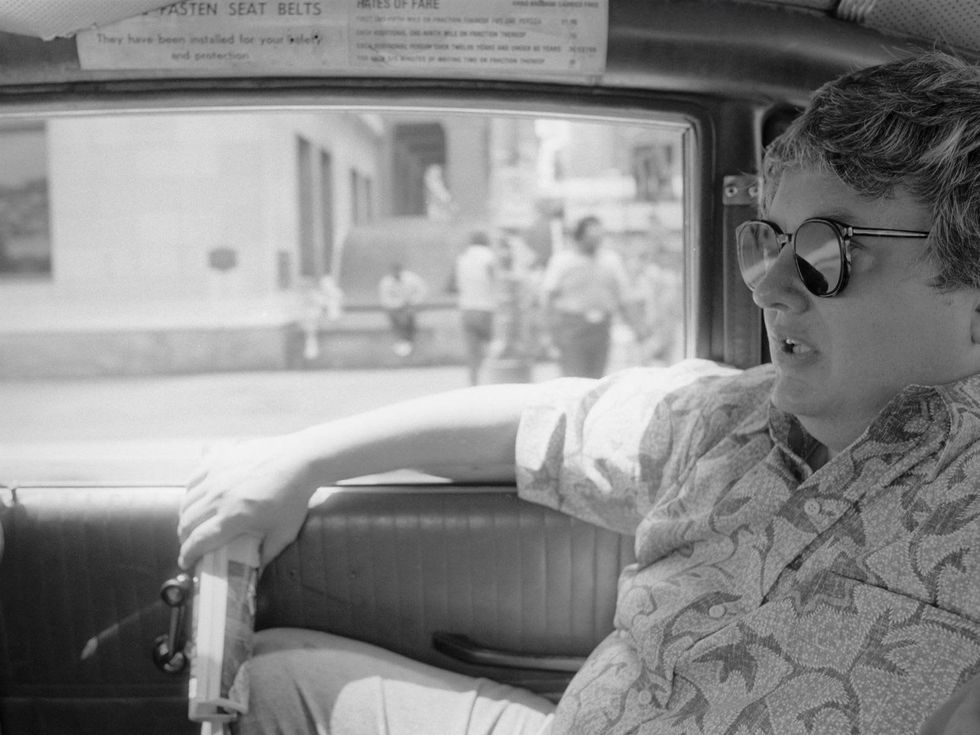Forget Milan-Cortina. The real winter figure skating action is taking place across Dallas-Fort Worth this holiday season.
From a brand-new ice rink taking over a popular park in downtown Dallas to rinks in town squares, hotels, and popping up as part of Christmas-y attractions, there are more places than ever to spin and glide through the season. You might even perfect your triple Salchow in time for Team USA tryouts.
Here are nine cool DFW ice rinks to jump into family fun for the 2025 holidays:
CultureMap City Rink, Main Street Garden in downtown Dallas, November 26-January 5
The first-ever CultureMap City Rink will transform Main Street Garden into Dallas' very own Rockefeller Center, filled with ice skating, sparkling lights, and festive fun for all ages. Presented by Verizon and produced in partnership with Downtown Dallas, Inc., the rink will host pop-ups and a full slate of programming, from romantic Date Skate Wednesdays to Family Movie Nights on Fridays, and Shop + Skate Saturday Markets. (Don't miss the big Holiday Tree Lighting Ceremony on Saturday, November 29 from 5-8 pm.) Don't fancy yourself a Winter Olympic hopeful? Then come for the people-watching and refreshment. Skaters and non-skaters alike can warm up at the Après Chalet, a cozy on-site lounge serving holiday drinks ("spirited" or not), and snack on nachos and tacos from DRG Concepts at Rudolph’s Rink Side Café.
Details: The CultureMap City Rink is located at Main Street Garden, 1902 Main St., in downtown Dallas. Regular hours are 4-10 pm Monday-Friday, 10 am-10 pm Saturday, and 10 am-8 pm Sunday. During school holidays (December 19-January 4), hours expand to 10 am-10 pm Monday-Saturday and 10 am-8 pm Sunday; check the website for special holiday hours. Tickets are $18 for all ages, and include skate rentals and 75 minutes of ice time. Advance tickets, group reservations, and private rink rentals are available at cityrink.culturemap.com.
Coca-Cola’s Classic Christmas, Dallas Midtown, November 21-December 28
Coca-Cola's holiday experience returns to DFW for a second year in a new location: Dallas Midtown — the former Valley View Mall. The winter wonderland includes an outdoor rink canopied by twinkle lights. The "Alpine Adventure" themed event illuminates 90,000 square feet of holiday light sculptures featuring larger-than-life vignettes to walk through and explore; plus a snow slide, visits with Santa, festive music, seasonal treats, special themed nights, and more.
Details: Open select nights, 5:30-9:30 or 10:30 pm; check the calendar for specific dates and times. Event tickets are $21-$29, ice skating is an additional $9 for children and $13 for adults. Note: If bringing your own skates, make sure they have blade guards on at all times; skate bags must meet a Clear Bag Policy.
 Skate the Square is an outdoor ice rink in Frisco. Frisco Square Facebook
Skate the Square is an outdoor ice rink in Frisco. Frisco Square Facebook
Skate the Square, Frisco, November 21-January 5
For the 15th year, Frisco's Christmas in the Square event will boast the city's only real ice outdoor ice rink. "Skate the Square" is but one of the highlights of the holiday extravaganza, which includes one of the largest free choreographed lights and music displays in North Texas: nightly shows of over 180,000 lights, 3,000 feet of RBG color-changing canopy, 200 dancing snowflakes, and festive music. There are also carriage rides, visits with Santa, and more.
Details: The Skate the Square rink is located along Main and Coleman. Open daily, but times vary (as early as 12:15 pm and as late as 10 pm); check the calendar for specific dates and times. Ice skating tickets are $25, with or without skate rentals. Private group bookings are available. Christmas in the Square runs nightly, 6-10 pm; the light show is free to attend.
 Peace Plaza Ice Rink Photo courtesy of Grapevine Convention & Visitors Bureau
Peace Plaza Ice Rink Photo courtesy of Grapevine Convention & Visitors Bureau
Peace Plaza Ice Rink, Grapevine, November 22-January 6
The 4,500-square-foot outdoor ice skating rink on Grapevine's Historic Main Street has become a favorite tradition in the "Christmas Capital of Texas." Skaters can glide around in the festive surroundings, including the 64-foot live Christmas tree, and the entire street decked out with Christmas lights.
Details: Open daily, times vary (opening as early as 11 am with last entry as late as 9 pm); check the calendar for exact dates and times. Closed Thanksgiving and Christmas Day. Location is Grapevine Main Peace Plaza, 815 S. Main St., at the train station outside Hotel Vin. Tickets are $20 for a one-hour session at 15-minute timed intervals; skate rentals included. Group ice rentals are available by the hour.
Gaylord Texan, Grapevine, November 19-January 3
As part of the Gaylord Texan’s Lone Star Christmas event, the Grapevine resort rolls out a 6,000-square-foot ice skating rink made with real ice. Skaters of all ages can rent a pair of skates or bring their own to glide among the dazzling holiday lights and festive decor. That's not the only way to get up close with ice, though. At ICE!, guests can experience their favorite scenes from Elf brought to life in the walk-through winter wonderland. (Adults can also enjoy spirited beverages at ICE! On The Blocks ice bar for $20.) Festivities also include a "Cirque" show, ice tubing, snowball building, crafts, light shows, gingerbread house decorating, and more.
Details: The ice rink is open daily in the Christmas Village; times vary. Tickets are $23. Admission to ICE! is separate, from $33.32.
 Stockyards Rodeo Rink is moseying into Fort Worth's historic district for the season. Photo courtesy of Shutterstock
Stockyards Rodeo Rink is moseying into Fort Worth's historic district for the season. Photo courtesy of Shutterstock
Stockyards Rodeo Rink, Fort Worth Stockyards, November 18-January 4
Visitors to the historic Fort Worth district can "giddy up and glide" all season long as part of the Stockyards' holiday festivities. The covered 4,000-square-foot professional ice skating rink takes over the lawn of the Livestock Exchange Building (131 E. Exchange Ave.) and includes snacks and beverages, fire pits, music, picnic seating, and more. Throughout the season, the Stockyards will also host visits with Cowboy Santa, a tree lighting at Hotel Drover, a "Christmas in the Stockyards" event, and much more.
Details: Hours vary by day. Five 90-minute skating sessions are offered Monday-Thursday, with an extra 9 pm session Friday-Sunday. Tickets are $25 for adults, $20 for kids ages 3-12, and include skate rental. A family four-pack is available for $80. Holiday treats include Whataburger Tuesdays, when everyone who skates gets a coupon for a free Whataburger.
 2022 Olympic pairs skater Ashley Cain (show here with former partner Timothy LeDuc) will make a solo appearance at the Hilton Anatole and Galleria Dallas ice rinks. Getty Images
2022 Olympic pairs skater Ashley Cain (show here with former partner Timothy LeDuc) will make a solo appearance at the Hilton Anatole and Galleria Dallas ice rinks. Getty Images
Hilton Anatole, Dallas, November 28-January 4
The Hilton Anatole will bring back its annual Christmas at the Anatole celebration with a new feature: an outdoor skating rink. Available for both hotel guests and visitors alike, the rink is located in what is usually the Atrium valet parking lot, complete with sparkling lights and skate rentals. On December 5, they'll welcome a special guest appearance by former Olympic figure skater Ashley Cain. Along with the rink come new Winter Glass Chalets — cozy private retreats overlooking the rink. Each accommodates up to eight guests and includes ice-skating access and dedicated food-and-beverage service.
Details: General admission tickets to Christmas at the Anatole are $20 and include a one-hour skate rental plus access to the holiday train rides, inflatables, and festive crafts. Tickets and packages can be reserved online at Hilton Anatole’s Christmas page. Chalets are $375 for a 90-minute reservation.
Garland Square on Ice, November 28-January 3
Glide into the heart of downtown Garland for a chance to skate around the Garland Square all 2025 holiday season. A full-sized outdoor ice-skating rink will be decorated with festive lights, just steps from local restaurants and retailers. The rink will host live music, holiday movies, and special themed nights - check the calendar for updates.
Details: The rink is located at Downtown Garland Square, 211 N. Fifth St., Garland. Hours are 4-9 pm Monday-Thursday, 4-10 pm Friday, 12-10 pm Saturday, 12-9 pm Sunday. Closed Thanksgiving, Christmas, and early closure at 6 pm on New Year's Eve. Tickets are $15 (before tax & handling fee) for one hour of skate time, skate rental included.
And no DFW ice rink roundup would be complete without the most famous one of all ....
 Galleria Dallas and its very Christmas tree. Photo courtesy of Galleria Dallas
Galleria Dallas and its very Christmas tree. Photo courtesy of Galleria Dallas
Galleria Dallas, through January 5
The nation's tallest indoor Christmas tree (at 95 feet) will shine in the middle of the ice rink throughout the season. Public skating is available every day, but as usual, holiday festivities will really rev up on at 12 pm Black Friday (November 28) with the Grand Tree Lighting Celebration on the ice rink, featuring some of the country's best figure skaters and ice dancers: 2022 Olympian Ashley Cain, U.S. National Champion Ryan Bradley, 2022 Olympian ice dancers Kaitlin Hawayek and Jean-Luc Baker, and Junior Grand Prix Champion Jacob Sanchez; it will end with a fireworks finale starring Missile Toes, the famed ice-skating Santa. (The celebration will repeat at 12 pm November 29 and December 6.)
Details: Public skating hours are 10 am-9:30 pm Monday, Wednesday-Thursday; 10 am-9 pm Tuesday & Friday; 12-9 pm Saturday; 12-6 pm Sunday. Admission is $13, plus $5 for skate rental. Public skating is first-come, first serve; no reservations permitted. A full list of holiday events at the ice rink is here.





 Skate the Square is an outdoor ice rink in Frisco. Frisco Square Facebook
Skate the Square is an outdoor ice rink in Frisco. Frisco Square Facebook  Peace Plaza Ice Rink Photo courtesy of Grapevine Convention & Visitors Bureau
Peace Plaza Ice Rink Photo courtesy of Grapevine Convention & Visitors Bureau  Stockyards Rodeo Rink is moseying into Fort Worth's historic district for the season. Photo courtesy of Shutterstock
Stockyards Rodeo Rink is moseying into Fort Worth's historic district for the season. Photo courtesy of Shutterstock  2022 Olympic pairs skater Ashley Cain (show here with former partner Timothy LeDuc) will make a solo appearance at the Hilton Anatole and Galleria Dallas ice rinks. Getty Images
2022 Olympic pairs skater Ashley Cain (show here with former partner Timothy LeDuc) will make a solo appearance at the Hilton Anatole and Galleria Dallas ice rinks. Getty Images  Galleria Dallas and its very Christmas tree. Photo courtesy of Galleria Dallas
Galleria Dallas and its very Christmas tree. Photo courtesy of Galleria Dallas